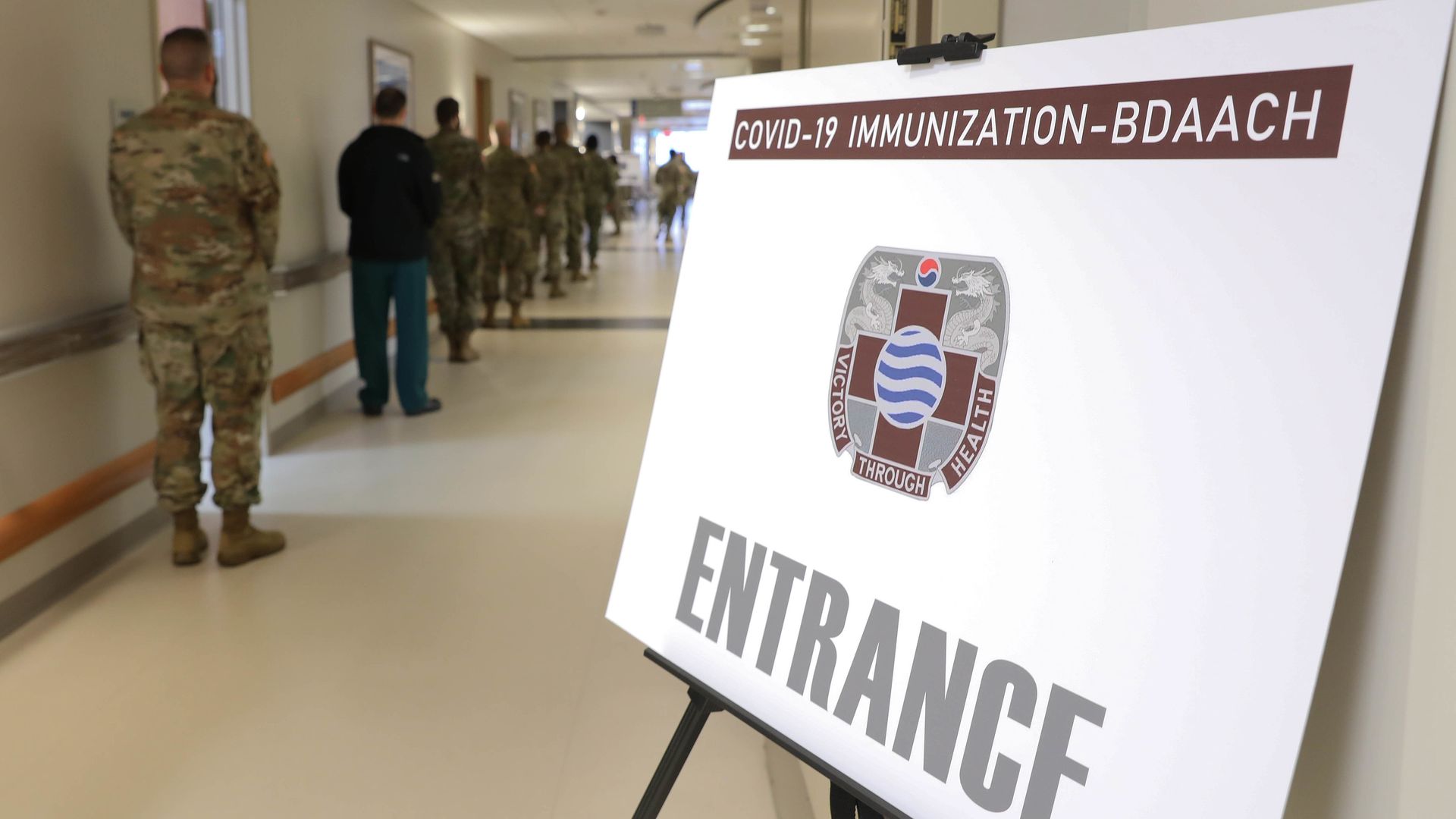Dec 29, 2020 - World
WHO urges vaccinated travelers to keep taking coronavirus precautions
Add Axios as your preferred source to
see more of our stories on Google.

American soldiers line up to receive the first COVID-19 vaccines at the Brian D. Allgood Army Community Hospital, U.S. Army Garrison Humphreys, in Pyeongtaek, South Korea, on Tuesday. Photo: United States Forces Korea via Getty Images
